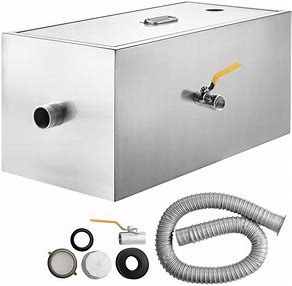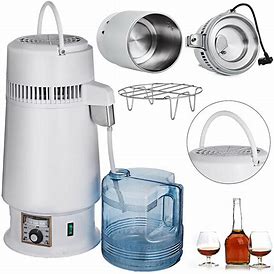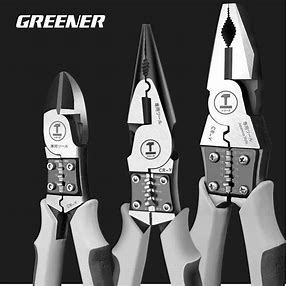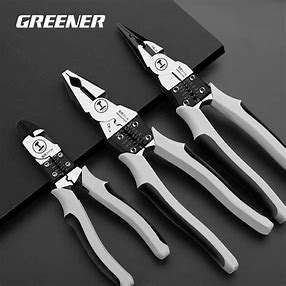This grease interceptor has a capacity of either 8 or 25 pounds, providing options for different kitchen sizes and levels of grease production.
Material:
It is constructed from stainless steel. Stainless steel is a common choice for grease interceptors because it is durable, corrosion-resistant, and easy to clean.
Fractional Filtration:
The term “fractional filtration” suggests that the grease interceptor is designed to filter out a significant portion of grease and solids from the wastewater.
Application:
Suitable for use in fast-food chains, commercial kitchens, and even for home use where there is a need to manage grease and prevent it from entering the drainage system.
Functionality:
Grease interceptors typically work by allowing the wastewater to cool down, which causes the grease to solidify and separate. The separated grease and solids then settle at the bottom of the interceptor, and the cleaner water flows out.
Maintenance:
Regular maintenance is essential to ensure the grease trap operates efficiently. This includes regular cleaning and removal of accumulated grease and solids.
Compliance:
It’s important to check local plumbing codes and regulations to ensure that the chosen grease interceptor complies with the standards in your area.
Installation:
Proper installation is crucial for the effective functioning of a grease interceptor. Follow the manufacturer’s instructions and, if needed, consult with a professional plumber during installation.
Cleaning Frequency:
The cleaning frequency depends on the volume of grease and solids produced in the kitchen. Regular maintenance and cleaning are necessary to prevent blockages and ensure the interceptor operates effectively.
Imagine you’re in a kitchen, whether it’s at home or in a commercial setting like a fast-food restaurant. When you cook, there’s often grease and oily substances involved. Now, when you wash dishes or clean surfaces, that grease can end up in the wastewater.
If this greasy water goes down the drain and into the sewer system without any intervention, it can cause problems. Grease doesn’t mix well with water, and over time, it can solidify and clog pipes. This is not only bad for your plumbing but can also lead to bigger issues in the community’s sewer system.
Enter the grease interceptor, in this case, the VEVOR 8/25LB Grease Interceptor. It’s like a filter for your wastewater. Here’s how it works:
Capture and Separate: The interceptor is designed to capture the grease and solid bits from the water.
Stainless Steel Construction: It’s made of stainless steel, a material that’s tough, resistant to rust, and easy to clean. This is important because dealing with grease can get messy, and you want a material that can handle it.
8/25LB Capacity: It can handle either 8 or 25 pounds of grease, depending on the model. This gives you options depending on how much cooking and cleaning you’re doing.
Fractional Filtration: This term suggests that it doesn’t just catch all the grease; it filters out a significant portion. This is good because it means cleaner water goes into the sewer system.
Application: It’s designed for places like fast-food chains and commercial kitchens where there’s a higher volume of cooking and, consequently, more grease to deal with. But it can also be used in homes where there’s a need for a grease trap.
Think of it as a kind of safety net for your plumbing. By using a grease interceptor, you’re preventing potential blockages and ensuring that the wastewater that goes into the sewer system is as clean as possible.
When you get a grease interceptor like the VEVOR 8/25LB, it needs to be installed in the plumbing system. Typically, it’s placed in a location where the water from your kitchen flows through it before heading into the regular sewer system.
As the wastewater flows through the grease interceptor, it slows down. This is intentional. As the water slows, the grease has a chance to cool and solidify. Imagine it like letting soup cool down—the fat in the soup starts to solidify and float on the surface. In the grease interceptor, the same principle applies.
The solidified grease and any other solid particles settle at the bottom of the interceptor, leaving cleaner water at the top.
Cleaning and Maintenance:
Regular cleaning is crucial. If you don’t clean it out, the grease trap will eventually become less effective. The frequency of cleaning depends on how much grease and solids your kitchen produces. For busy commercial kitchens, this might be more frequent.
Cleaning involves removing the accumulated grease and solids. It’s a bit like cleaning out the filter in your vacuum cleaner—it needs to be done to keep things running smoothly.
Compliance and Regulations:
Depending on where you are, there might be specific regulations and codes about the use of grease interceptors. Local plumbing codes often dictate the type and size of grease interceptors required for different establishments.
Compliance with these regulations is essential not just for smooth operation but also to avoid any fines or penalties.
Cost Considerations:
Grease interceptors are an investment, but they can save you money in the long run. By preventing clogs and damage to your plumbing system, you’re avoiding potentially expensive repairs.
Consider the size and needs of your kitchen when choosing a grease interceptor. It’s a bit like choosing the right-sized trash can—you want one that fits your needs without being too small or too large.
Environmental Impact:
Properly functioning grease interceptors not only protect your plumbing but also contribute to environmental protection. By preventing grease and solids from entering the sewer system, you’re helping to keep waterways clean and reducing the need for potentially harmful chemical treatments.
Consulting Professionals:
While many grease interceptors can be installed by knowledgeable individuals, it might be wise to consult with a professional plumber during installation, especially in commercial settings where the requirements might be more complex.
So, in a nutshell, a grease interceptor like the VEVOR 8/25LB is a vital component in managing kitchen wastewater, preventing plumbing issues, and contributing to a cleaner environment. It’s not just a piece of equipment; it’s a proactive measure to keep things flowing smoothly in the kitchen and beyond.










Reviews
There are no reviews yet.